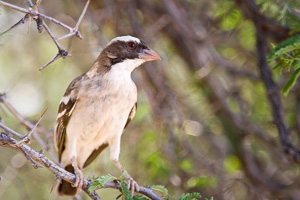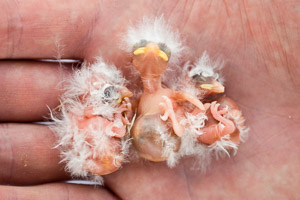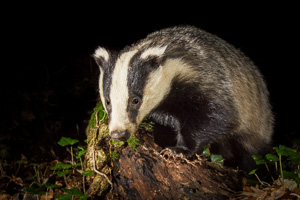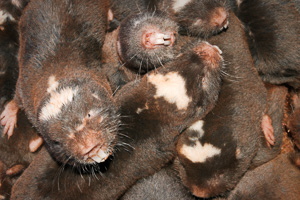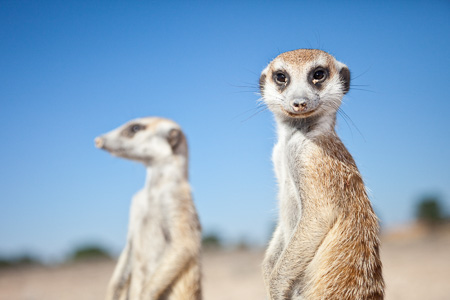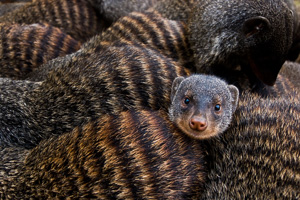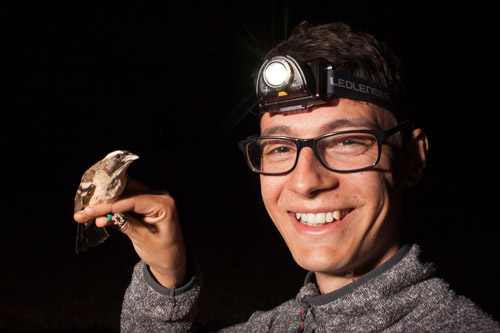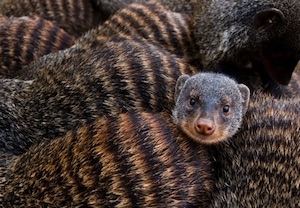Welcome
animal societies
ANDY YOUNG’S RESEARCH GROUP
SOCIAL EVOLUTION | LIFE-HISTORIES | AGEING
WELCOME!
I am an Evolutionary Biologist at the University of Exeter’s Centre for Ecology and Conservation in Cornwall, and my team study Social Evolution and Senescence (Ageing).
We do so principally using long-term field studies of wild social vertebrates, including cooperative weaver birds in the Kalahari desert and European badgers in the UK. We also collaborate with microbiologists to study the evolutionary origins of ageing in unicellular organisms using timelapse microfluidics. Our research is highly integrative, combining life-history and behavioural data with physiological and genomic tools to address both evolutionary and mechanistic questions, given the potential for each to inform the other.
Find out more about our Research, Team & Findings using the tabs above. Enjoy!
If you’re keen to join the team or collaborate just drop me an email
** New funded PhD in our lab - APPLY NOW! **
- PhD Project Description -
Senescence, late-life declines in reproductive success and survival, is widespread in natural animal populations, but its mechanistic causes and wider implications remain poorly understood. This project will investigate the role that ‘inflammageing’ (ageing of the inflammatory immune system; a major hypothesised driver of late-life frailty in humans) plays in driving late-life declines in reproductive success, survival and disease tolerance in wild European badgers.
The project will utilise the extraordinary long-term field study of European badgers led by our collaborators at the Animal and Plant Health Agency (APHA), in which the life-histories and disease states (tuberculosis infection) of 30 social groups of badgers have been monitored continuously for the past 50 years. The project therefore offers unprecedented opportunities for pure and applied research on ageing and its evolutionary and epidemiological implications in an iconic model system harbouring economically significant wildlife disease.
Our work to date has provided compelling evidence of age-related changes in inflammatory state in this system. We now wish to advance our understanding of these changes, their fitness consequences and their implications for the progression and transmission of infectious disease. We also anticipate investigating the environmental drivers of inflammatory state, the potential for the evolution of inflammatory state, and the effects of parental inflammatory states on the performance of their offspring (i.e inter-generational effects). The study will thereby provide the first comprehensive investigation of the causes and consequences of inflammageing in a natural animal population.
The project would therefore suit candidates with an interest in any or all of evolutionary ecology, ageing, immunology and wildlife disease. Applicants will not be expected to be familiar with all of these fields from the outset; a keen interest in the topic and a willingness to learn are the key criteria.
The PhD will be hosted within Andy Young’s and Barbara Tschirren’s research groups in Exeter’s Centre for Ecology and Conservation (CEC) in Cornwall, UK. The CEC hosts one of the largest groups of organismal biologists in the world, with particular research strengths in evolution, behaviour, ecology, conservation and marine biology, providing a vibrant research-active community and a large cohort of early-career researchers to interact with during your time here.
RECENT Research HIGHLIGHTS…
Architectural traditions in the structures built by cooperative weaver birds
Tello-Ramos M, Harper L, Tortora-Brayda I, Guillette LM, Capilla-Lasheras P, Harrison XA, Young AJ, Healey SD (2024)
Science
Evolution of sex differences in cooperation can be explained by trade-offs with dispersal
Capilla-Lasheras P, Bircher N, Brown AM, Harrison X, Reed T, York JE, Cram DL, Rutz C, Walker L, Naguib M, Young AJ (2024)
PLOS Biology
Mothers in a cooperatively breeding bird increase their pre-natal investment per offspring when they will have more help with post-natal care
Capilla-Lasheras P, Wilson AJ, Young AJ (2023)
PLOS Biology
Altruistic bet-hedging and the evolution of cooperation in a Kalahari bird
Capilla-Lasheras P, Wood EM, Harrison X, Wilson AJ, Young AJ (2021)
Science Advances + Nice coverage in PNAS here…
Sex differences in dispersal predict sex differences in helping across cooperative birds and mammals
Fenner P, Currie T, Young AJ (BioRxiv)
Prolactin and the regulation of parental care and helping behaviour in cooperatively breeding white-browed sparrow weaver societies
Walker LA, Tschirren L, York JE, Sharp PJ, Meddle SL, Young AJ (BioRxiv)
MAJOR MODEL SYSTEMS
WHITE-BROWED SPARROW WEAVERS
LIFE-LONG SOCIAL PHENOTYPING | GENETIC PEDIGREE | MOLECULAR TOOLS
This cooperatively breeding bird is our primary model system. We have been continuously monitoring the life-histories of all birds from egg through to senescence in >40 social groups in the Kalahari desert since 2007. We now have >decade of life-history data covering >1700 individuals monitored throughout their lives to date, as well as egg, nestling and cooperative provisioning data from >900 breeding attempts.
EUROPEAN BADGERS
The UK Animal Plant and Health Agency (APHA) have been monitoring the lives of all individuals in 30 social groups of European badgers for the past 50 years, with a particular focus on their role in bovine tuberculosis dynamics. This work has yielded an incredible longitudinal data set of life-history, morphology, molecular and disease status information on >5000 individuals.
We use this phenomenal model to study the evolution and mechanisms of ageing, and their interactions with sociality and disease, in close collaboration with APHA.
Join us for a Masters by Research Degree
I am always keen to take on new Masters by Research (MbyRes) students
This is a 2 year research-intensive post-grad degree that is an ideal stepping stone to PhD.
The fees (see here) are lower than for a taught MSc programme & the research experience is stronger.
Get in touch to discuss the types of projects we have available
